Articles by Dr. Ghadar
Through more than 25 years of research in the broad field of global management, FG's articles have been cited numerous times.
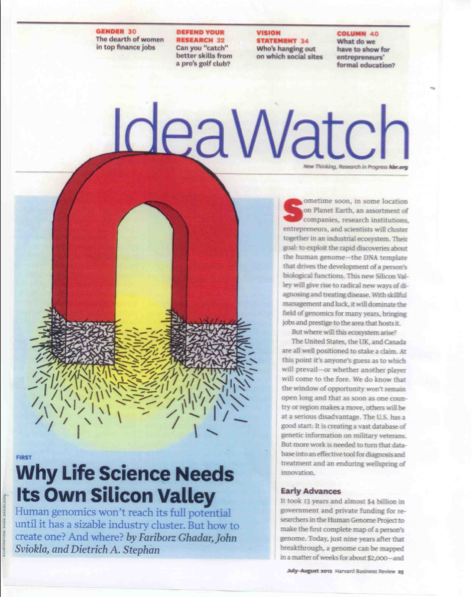
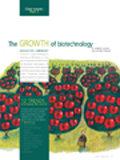

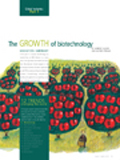

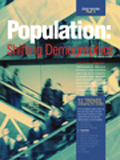
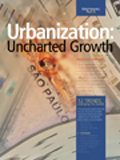
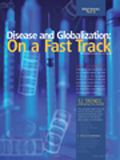
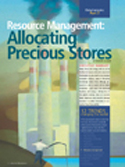
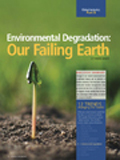
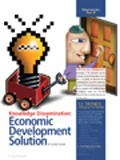
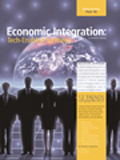

Why Life Science Needs Its Own Silicon Valley

with John Sviokla and Dietrich A. Stephan
Harvard Business Review, July-August 2012
Fariborz Ghadar, director of the Center for Global Studies, writes about the need for the “Silicon Valley” effect to take place in the human genomics industry. Ghadar suggests that in order for the study of human DNA to advance to its full potential, an industry cluster must be created. “The genomics cluster will include multi-national corporations, research institutions, scientists, students, investors, related industries, and start-ups that haven’t been imagined yet,” Ghadar says. “And although the IT part of bio IT relies heavily on the Internet, geography will be a crucial factor: The genomics cluster will have a physical location. Studies show that having a high concentration of people working on similar problems in the same location speeds progress.”Iran's Gas Swells Economic Frustration
Jane's Islamic Affairs Analyst, December 2008
Despite a wealth of natural gas, Iran’s options to diversify and make capital out of its hydrocarbon resources has been severely limited by political and structural constraints. Fariborz Ghadar assesses the country’s options for exploiting the world’s second largest reserve of natural gas and the role European customers might play.Lines Drawn Over Iran's Resources
with Ethan Chorin
Jane's Islamic Affairs Analyst, December 2008
In its continued stand off with Iran over uranium enrichment, the United States would like Gulf Co-operation Council countries to comply with extended, resource-related sanctions against the Islamic Republic. Ethan Chorin and Fariborz Ghadar assess the long-standing, key economic relationship between the cross-Gulf neighbours and the wider ramifications of ending it.Will They Still Feed Us When We're 65?
Los Angeles Times, Mar.20, 2005
In the swiftly changing global economy, only nations, corporations and workers that remain flexible will survive — and those most willing to adapt will thrive. As population growth sputters in some countries and accelerates in others, and the average age of people worldwide advances, imperceptible change is taking place. This shift is similar to a tectonic force.The Evolving Role of Global Business
Keynote Address at the Thirteenth Annual ISBM Members meeting
Dr. Ghadar, director of Penn State 's Center for Global Business Studies, told the conference that the most successful global companies achieve a reputation for providing value throughout the 'international product life cycle.' Shorter product life cycles and more expensive research and development now make these firms attractive strategic partners for emerging technology companies. In turn, the value leaders with marketing clout need to ally themselves with new-technology firms to avoid an otherwise inevitable slide into mature, commoditized markets with cutthroat competition and slim profit margins.The Growth of Biotechnology

with Heather Spindler
Industrial Management, Mar-Apr, 2005
In the span of a decade, biotechnology has evolved from an R&D initiative to a major force in the agriculture and health care industries. Manufacturers should prepare to feel increasingly the effects of biotech applications as well. While society continues to debate the morality of biotechnology, companies that develop safe applications accepted by a wary public will reap enormous profits.Nanotechnology : Small Revolution

with Heather Spindler
Industrial Management, May-Jun, 2005
Nanotechnology is already attracting considerable investment by both governments and private industry worldwide. When perfected, advanced nanotechnology will streamline production and reduce manufacturing costs in significant ways. The result will be a $1 trillion sales market for nanotech components in the next 15 years.IT: Ubiquitious Force

with Heather Spindler
Industrial Management, Jul-Aug, 2005
Information technology and its results touch every aspect of our lives. Statistics reveal that IT will be an ever more vital and multidimensional part of our daily lives. While the opportunities are obvious, the challenges are often hidden.Governance: The Rising Role of NGOs

Industrial Management, Mar-Apr, 2005
Information technology and its results touch every aspect of our lives. Statistics reveal that IT will be an ever more vital and multidimensional part of our daily lives. While the opportunities are obvious, the challenges are often hidden.Population: Shifting Demographics

with Heather Spindler
Industrial Management, Mar-Apr, 2005
Worldwide population is on the rise: however, the increase is not happening symmetrically across the globe. Some of the countries that can least afford to support a burgeoning citizenship will find their resources stretched to the limit. At the same time, some developed countries will battle a problem of a declining birthrate combined with an aging population, resulting in a very lean work force.Urbanization: Uncharted Growth

Industrial Management, Mar-Apr, 2005
The rush of people from the country to the city will have profound effects on urban centers across the globe. What has happened in Sao Paulo,Brazil, in the past 50 years serves as an example of what is to come for many cities, Stretched beyond its capacity to provide residents with necessary systems, Sao Paulo has massive congestion, poor public transportation, and a noticeable lack of proper sanitation.Disease and Globalization: On a Fast Track

with Beth Hardy
Industrial Management, Mar-Apr, 2005
While epidemics have been around for as long as humanity’s existence, their spread was once held in check by geography. However, the proliferation of high-speed global transport of people and livestock has opened the floodgates for disease transmission. Private business must find its role in responding to disease outbreaks.Resource Management: Allocating Precious Stores

Industrial Management, Mar-Apr, 2005
Water, food, and energy will be at the forefront of resource allocation concerns in the decades to come. Earth’s most precious renewable resource, water is becoming increasingly scarce; food, although produced at a rate to nourish all the Earth’s inhabitants, can’t reach the necessary locations; and energy, a driving force in the global economy, faces an uncertain future. Businesses must invest in strategic resources to position themselves to succeed as these forces unfold.Environmental Degradation: Our Failing Earth

Industrial Management, Mar-Apr, 2005
Changes in our natural environment have a profound impact, yet as elements of business planning, they have been largely overlooked. Gradual developments easily go unnoticed, but there is still time to act on negative trends, turning them to business advantages while healing our planet for everyone’s benefit.Knowledge Dissemination: Economic Development Solution

Industrial Management, Mar-Apr, 2005
Knowledge: the production and dissemination of context-dependent information—is playing an important role in wealth generation around the world. In this economy, ideas and know-how are proving to be as valuable as the traditional factors of production: capital, land, and labor. China and India are already riding this new economic wave.Economic Integration: Tech-Enabled Synthesis

Industrial Management, Mar-Apr, 2005
The world is shrinking, and companies can no longer count on thriving, let alone surviving, by isolating themselves. Both countries and companies grow more rapidly through integration, so it behooves organizations to devise management strategies to track political developments and monitor the productivity of employees worldwide.Conflict: Its Changing Face
